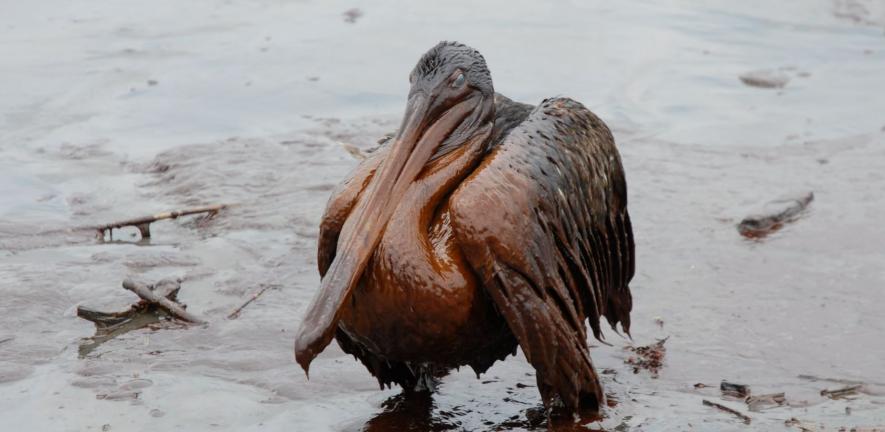
The new polymer soaks up crude oil or diesel and turns it into a gel. The “sponge” can then be squeezed to remove the oil, and reused.
Dr Gonçalo Bernardes, a Royal Society University Research Fellow here in the department, and his research student Inês S. Albuquerque, worked with a team from South Australia’s Flinders University on the joint project, published in the journal Advanced Sustainable Systems on 18 April.
The polymer the team developed has the potential to be less expensive and more sustainable than existing clean-up tools, or sorbents.
Most commercial sorbents are made from non-renewable polypropylene fibres or polyurethane foams, but the new polymer is made entirely from waste - sulfur, which is a by-product of the petroleum industry, and used cooking oil. This makes it inherently lower in cost and sustainable -- it is actually using waste from the oil industry to combat pollution from that same sector!
Importantly, the product is also safe. Goncalo says: “We have evaluated the new polymers for their potential toxicity and found that they are benign to living cells in general. This is important so that these materials can be used on the field.”
And the new sorbent, does not suffer from low buoyancy and other issues which have traditionally plagued sorbents made from natural sources. That’s because its components are hydrophobic (repel water), which gives it an affinity for hydrocarbons such as crude oil and diesel fuel, allowing it to rapidly remove them from seawater.
In addition to fuel spills on a catastrophic scale such as the Deepwater Horizon offshore drilling rig in 2010, there are hundreds of smaller spills each year, with adverse effects on the environment, economy and human health. Oil pollution is also a serious concern in developing regions where limited resources hamper the response to spills that threaten ground water, drinking water and food staples such as fish and other aquatic organisms.
Researchers are now working with engineers and government agencies to manufacture the product on a larger scale, with a goal of field-testing it over the next year.
The Bernardes group is also now exploring its potential for biomedical applications, for example, the delivery of drugs.
Sustainable Polysulfides for Oil Spill Remediation: Repurposing Industrial Waste for Environmental Benefit, Max JH Worthington, et al.

